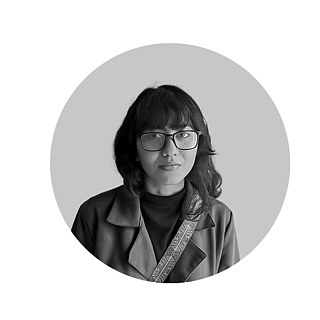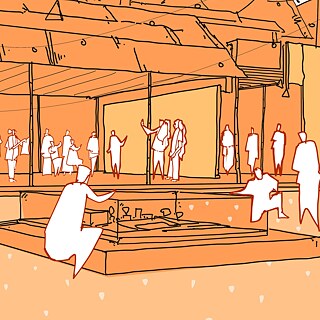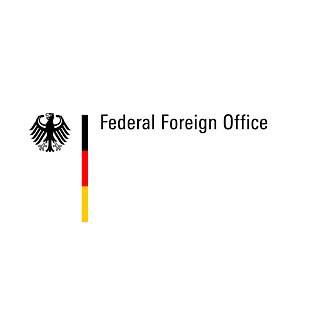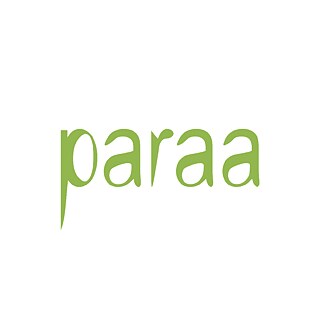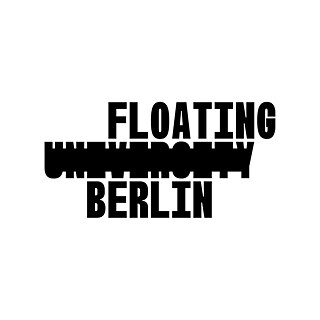Workshops and Exhibitions
KORAIL PLAY
The Goethe-Institut Bangladesh together with its partners, Paraa, Floating University and the Korail Youth team organized an exhibition titled, ‘KorailPlay’ at the premises of Drikpath Bhabon in 2023.
The event began with an exhibition showcasing the research conducted by the Paraa in Korail for the last one and a half years, complemented by visual narratives of Floating University’s previous endeavors. Following the open exhibition, Riyad, Asma, Hasan and Shaluk from the Korail Youth team took center stage, sharing their experiences within the project and offering valuable insights into life in Korail as an informal settlement. The event concluded in a thought-provoking talk delivered by Paraa and Floating, further enriching the audience's understanding of the collaborative efforts shaping the Korail- City of Culture project.
INSIGHTS INTO KORAIL
In our "Insights into Korail" series, we're thrilled to share the impactful presentations delivered by the Korail Youth team during the KorailPlay exhibition. They delve into their meaningful involvement in a participatory engagement workshop and survey led by Paraa. The team raised thought-provoking questions, exploring the significance of play, identifying safe spaces for girls, and understanding the varied perspectives on play within the diverse community of Korail.
An integral part of their journey involved envisioning an ideal playspace, reflecting both their personal aspirations and the collective dreams of the community for an inclusive and safe environment.
KORAIL AT A GLANCE
Riyad discusses Korail's transition from an open space to one of the largest informal settlements in Bangladesh, highlighting challenges such as limited education opportunities, harsh living conditions, and inadequate healthcare and infrastructure.MAPPING OF KORAIL
Shaluk reflects on their post-survey objectives, focusing on understanding the community's vision for a play field emphasizing inclusivity for transgender individuals, women, the elderly, and differently-abled individuals.WORKSHOP WITH PARAA AND MAKING THE MODEL
Hasan shares the team's journey, from understanding community desires for an inclusive field to presenting their dream model with features like a climbing wall and inclusive spaces, garnering widespread community support.SEARCHING FOR THE CREATIVE ARTISAN TO THE FINAL DESIGN
Asma sheds light on their collaboration with Paraa Studio, unveiling the existence of overlooked local artisans in Korail narrating their craftsmanship journey, shifts in professions, and a detailed survey, capturing the vibrant community life through comprehensive mapping efforts.TOPAPATI: PICNIC BY THE LAKE
Inspired by the cherished game of Topabhati in rural Bangladesh, this interaction between all the project teams unfolded as a fusion of tradition and innovation. In the game of Topabhati, "Topa '' symbolizes earthen pots, "Bhati '' signifies rice cooking, and the use of sticks transforms into architectural poles for imaginative playhouses adorned with leaf canopies.
Reminiscent of the Topabhati game, the Korail youth team, alongside Paraa and Floating, organized a picnic, fostering bonds through the art of communal cooking followed by exploration of Korail. This initiative beautifully exemplifies the transformative power of collaborative engagement, uniting diverse communities in a symphony of tradition and togetherness.
FIELD TRIP TO TANGAIL
As a part of the Korail- City of Culture project, all collaborating partners embarked on a visit to Ubinig in Tangail. The day unfolded with an immersive exploration of the farm, offering a firsthand glimpse into the intricate weaving process of Tangail sarees and the traditional artistry involved in crafting Shitol Pati ( intricately woven mats). The visit seamlessly transitioned into moments of leisure and camaraderie, including a refreshing dip in the pond, spirited games of badminton, and joyful play in the field.
The trip concluded with the Korail Youth actively engaging in the art of tie-dying with indigo colors—an enriching finale to a day marked by cultural exploration and shared learning.
Korail Youth Leaders
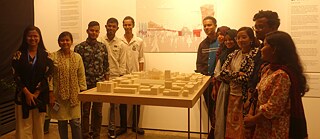
Korail youth with the final design model at the Korail play exhibition at Drikpath. | © Paraa, Goethe-Institut
Know more about the Korail Youth Leaders
Contact
-
Mormee Mahtab
Project Coordinator, Goethe-Institut Bangladesh
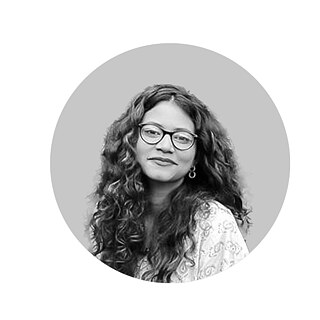
-
Fatima Nujhat Quaderi
Project Assistant , Goethe-Institut Bangladesh
